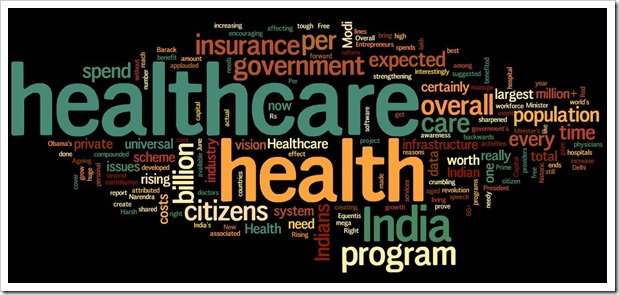- Home
- Medical news & Guidelines
- Anesthesiology
- Cardiology and CTVS
- Critical Care
- Dentistry
- Dermatology
- Diabetes and Endocrinology
- ENT
- Gastroenterology
- Medicine
- Nephrology
- Neurology
- Obstretics-Gynaecology
- Oncology
- Ophthalmology
- Orthopaedics
- Pediatrics-Neonatology
- Psychiatry
- Pulmonology
- Radiology
- Surgery
- Urology
- Laboratory Medicine
- Diet
- Nursing
- Paramedical
- Physiotherapy
- Health news
- Fact Check
- Bone Health Fact Check
- Brain Health Fact Check
- Cancer Related Fact Check
- Child Care Fact Check
- Dental and oral health fact check
- Diabetes and metabolic health fact check
- Diet and Nutrition Fact Check
- Eye and ENT Care Fact Check
- Fitness fact check
- Gut health fact check
- Heart health fact check
- Kidney health fact check
- Medical education fact check
- Men's health fact check
- Respiratory fact check
- Skin and hair care fact check
- Vaccine and Immunization fact check
- Women's health fact check
- AYUSH
- State News
- Andaman and Nicobar Islands
- Andhra Pradesh
- Arunachal Pradesh
- Assam
- Bihar
- Chandigarh
- Chattisgarh
- Dadra and Nagar Haveli
- Daman and Diu
- Delhi
- Goa
- Gujarat
- Haryana
- Himachal Pradesh
- Jammu & Kashmir
- Jharkhand
- Karnataka
- Kerala
- Ladakh
- Lakshadweep
- Madhya Pradesh
- Maharashtra
- Manipur
- Meghalaya
- Mizoram
- Nagaland
- Odisha
- Puducherry
- Punjab
- Rajasthan
- Sikkim
- Tamil Nadu
- Telangana
- Tripura
- Uttar Pradesh
- Uttrakhand
- West Bengal
- Medical Education
- Industry
Pharmaceuticals demands increase in public spending on healthcare

MUMBAI: Pharmaceutical industry today demanded increased public spending on healthcare to improve access to healthcare in the country.
As public spending on healthcare in India is among the lowest in the world, the increased public spending and sustainable financing mechanisms may improve access to healthcare in the country, Organisation of Pharmaceutical Producers of India (OPPI) said in a paper titled 'Healthcare Financing'.
The Centre is already seeking to overhaul the health system with an aim to advance universal health coverage and focus on social indicators of healthcare, it added.
"India's healthcare infrastructure is among the poorest in the world and has remained stagnant for many years. Moreover, private health insurance is low, at 5 per cent of the total population.
"An additional 12 per cent (population) have some cover under government schemes. Most healthcare costs are still borne by patients, as out-of-pocket expenses. Clearly, effective financing mechanisms are a critical requirement for improving access to healthcare," it said.
"Investment in healthcare will contribute to economic development, through improved productivity, capital accumulation and reduced treatment burden," OPPI President, and Managing Director, India & Vice President, South Asia, Sanofi India Shailesh Ayyangar said at the fourth Healthcare Access Summit here, hosted by OPPI.
Ranjana Smetacek, Director General, OPPI said "after decades of low public spending on healthcare, Government must now accord priority to this sector. A meaningful budget allocation will enable a healthcare model that delivers healthcare access for all."
"We also need sustainable policy solutions to support healthcare financing, infrastructure and human resource challenges," he added.
The pharmaceutical industry also making a pitch to Prime Minister Narendra Modi to subsidise health insurance with a view to make it universal.
As public spending on healthcare in India is among the lowest in the world, the increased public spending and sustainable financing mechanisms may improve access to healthcare in the country, Organisation of Pharmaceutical Producers of India (OPPI) said in a paper titled 'Healthcare Financing'.
The Centre is already seeking to overhaul the health system with an aim to advance universal health coverage and focus on social indicators of healthcare, it added.
"India's healthcare infrastructure is among the poorest in the world and has remained stagnant for many years. Moreover, private health insurance is low, at 5 per cent of the total population.
"An additional 12 per cent (population) have some cover under government schemes. Most healthcare costs are still borne by patients, as out-of-pocket expenses. Clearly, effective financing mechanisms are a critical requirement for improving access to healthcare," it said.
"Investment in healthcare will contribute to economic development, through improved productivity, capital accumulation and reduced treatment burden," OPPI President, and Managing Director, India & Vice President, South Asia, Sanofi India Shailesh Ayyangar said at the fourth Healthcare Access Summit here, hosted by OPPI.
Ranjana Smetacek, Director General, OPPI said "after decades of low public spending on healthcare, Government must now accord priority to this sector. A meaningful budget allocation will enable a healthcare model that delivers healthcare access for all."
"We also need sustainable policy solutions to support healthcare financing, infrastructure and human resource challenges," he added.
The pharmaceutical industry also making a pitch to Prime Minister Narendra Modi to subsidise health insurance with a view to make it universal.
Meghna A Singhania is the founder and Editor-in-Chief at Medical Dialogues. An Economics graduate from Delhi University and a post graduate from London School of Economics and Political Science, her key research interest lies in health economics, and policy making in health and medical sector in the country. She is a member of the Association of Healthcare Journalists. She can be contacted at meghna@medicaldialogues.in. Contact no. 011-43720751
Next Story


